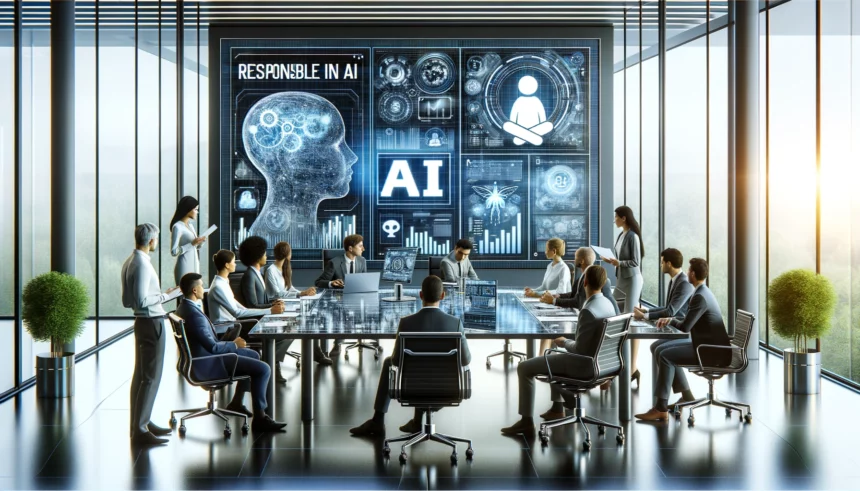Artificial intelligence (AI) is transforming how we live and work, but it also brings significant ethical challenges that must be managed carefully. It’s vital to understand and responsibly use AI to ensure it benefits society while minimizing risks.
Understanding AI’s Power and Its Ethical Implications
AI is powerful because it can analyze vast amounts of data to identify patterns and make decisions. This capability is revolutionizing fields from healthcare to transportation. However, the power of AI also introduces ethical issues, such as privacy concerns and the potential for bias, which need to be addressed to maintain trust and fairness.
What Does Responsible AI Use Look Like?
- Transparency and Understanding: AI should be easy to understand, and companies should be clear about how AI systems make decisions.
- Fairness: AI must operate without bias to avoid unfair treatment of individuals or groups.
- Privacy and Data Security: Protecting personal data is crucial. AI should collect only the data necessary for its function and respect privacy laws.
- Safety First: AI systems, especially in critical areas like medicine or driving, should be secure and prioritize user safety.
- Human Oversight: AI should support human decision-making, not replace it. This ensures that decisions are ethical and legal, particularly in sensitive fields.
- Social Responsibility: AI developers should consider the wider impacts on society, such as potential job losses.
- Ethical Design: Throughout AI’s development and use, ethical practices should guide actions to prevent harm and ensure inclusivity.
Why Responsible Use of AI Matters
- Preventing Harm: By using AI responsibly, we can avoid unintentional injuries or misinformation.
- Avoiding Unethical Practices: Ethical guidelines help prevent misuse of AI, such as invading privacy or manipulating users.
- Ensuring Fairness: A responsible approach helps eliminate biases in AI decision-making.
- Protecting Privacy: Managing data carefully prevents privacy breaches.
- Building Trust: When AI’s actions are transparent and understandable, it builds confidence among users.
- Guaranteeing Equal Access: Responsible AI ensures that its benefits are available to everyone, regardless of background.
- Preserving Human Control: By keeping humans in charge, AI complements rather than replaces human abilities.
- Reducing Disruption: Thoughtful AI deployment can help manage economic impacts, such as job changes.
- Promoting Societal Good: AI should support important societal goals in healthcare, education, and the environment.
How to Ensure AI Is Used Responsibly
- Government Role: Governments need to regulate AI, setting standards to ensure it’s safe and beneficial.
- Developer Responsibility: AI creators should adhere to ethical standards and ensure their products are safe and fair.
- Educational Role: Schools should teach AI ethics to prepare responsible future technologists.
- Business Responsibility: Companies should practice responsible AI, providing training to help employees adapt to new technologies.
AI has the potential to greatly enhance our lives and businesses, but it must be used wisely to avoid negative consequences like job losses or unethical behavior. By promoting ethical practices and carefully managing AI, we can harness its benefits while ensuring it supports a fair and just society.















